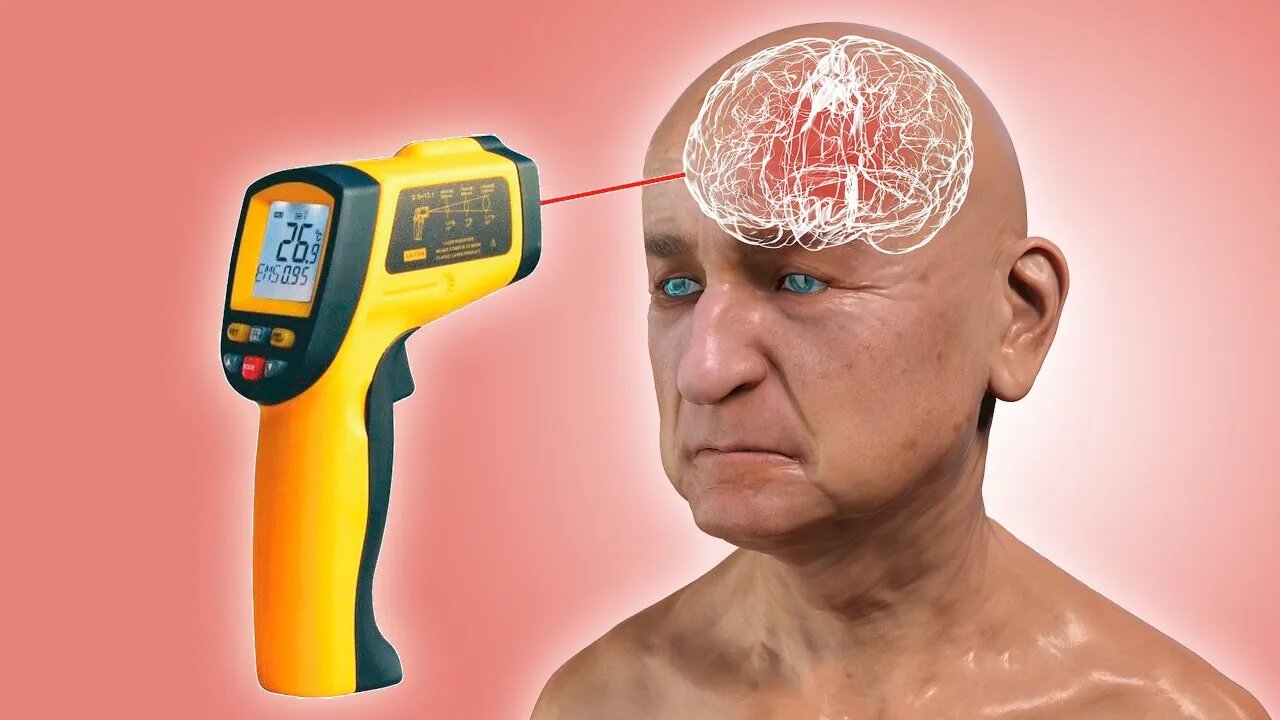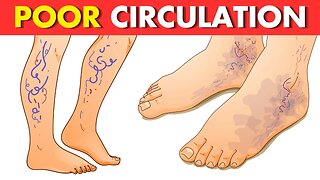Premium Only Content

Does Using Infrared Thermometers Damage The Brain?
With Covid, forehead thermometers, those with infrared sensors, started to show up more frequently to check people's temperature in public places.
You probably have seen them around, haven't you?
With its popularity came the question: are infrared thermometers bad for the health?
According to the news, it would put the brain at risk. However, according to experts, the thermometer does a superficial measurement. The hoax says that the pineal gland could be harmed, affecting the entire health.
The pineal gland is a small, pine-shaped gland that connects the endocrine system to the nervous system, converting the nervous signals from the sympathetic system into hormonal signs.
The pineal gland is involved in many body functions, including melatonin secretion, regulation of endocrine functions, and converting nervous system signals into endocrine signals.
It also influences sleep, sexual development, immunological function, and antioxidant activity. In the beginning, many doctors said that, when using an infrared thermometer, it was better to take the temperature on the wrist.
To explain how infrared thermometers work, we decided to research them. Did you know what a digital thermometer with an infrared sensor is?
Digital thermometers with infrared sensors are safe, although they might present some accuracy issues. Of course, it should never be pointed at the eyes due to the possibility of causing lesions.
There are no reports of infrared thermometers causing cancer. On the contrary, infrared is used in some oncological treatments. Phew, that's good news, isn't it?
0:00 Do infrared thermometers pose a risk to the pineal gland?
0:54 How the pineal gland works
1:29 How infrared thermometers work?
2:37 Are infrared thermometers safe?
----------------------------------------
Facebook: https://bit.ly/38BWbw3
Pinterest: https://bit.ly/2Irvwa6
Disclaimer: The materials and the information contained on Natural Cures channel are provided for general and educational purposes only and do not constitute any legal, medical or other professional advice on any subject matter. These statements have not been evaluated by the FDA and are not intended to diagnose, treat or cure any disease. Always seek the advice of your physician or other qualified health provider prior to starting any new diet or treatment and with any questions you may have regarding a medical condition. If you have or suspect that you have a medical problem, promptly contact your health care provider.
-
 4:50
4:50
Natural Cures
1 year ago $1.16 earned5 Warning Signs of Poor Circulation and How to Fix It
3.51K1 -
 LIVE
LIVE
Film Threat
1 hour agoDISNEY PARODY SCREAMBOAT + A WORKING MAN + LOADS OF REVIEWS | Film Threat Livecast
85 watching -
 LIVE
LIVE
LFA TV
16 hours agoALL HANDS ON DECK! | LIVE FROM AMERICA 3.28.25 11AM
3,590 watching -
 LIVE
LIVE
Tudor Dixon
2 hours agoThe Birth of the March Madness Bracket | The Tudor Dixon Podcast
36 watching -
 42:50
42:50
Tate Speech by Andrew Tate
1 hour agoPETER PAN PEANUT BUTTER ALERT | WHITE POWER
25.8K36 -
 LIVE
LIVE
Caleb Hammer
1 hour agoIf Her Husband Sees This, He's Leaving | Financial Audit
98 watching -
 LIVE
LIVE
The Big Mig™
3 hours agoMichigan White Democrats Want New Jim Crow Laws?
4,580 watching -
 1:02:10
1:02:10
BonginoReport
5 hours agoLeft Loses it Over a Cartoon - Early Edition With Evita (Ep.170) - 03/28/2025
134K192 -
 2:48:56
2:48:56
Matt Kohrs
13 hours agoBreaking Inflation Report, Stocks Slip & Trading $1M || The MK Show
41.9K3 -
 2:58:55
2:58:55
Wendy Bell Radio
7 hours agoThe Swamp Things
70.3K44